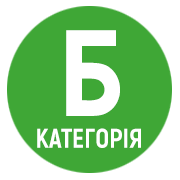THE IMPACT OF NEW TECHNOLOGIES ON THE DEVELOPMENT OF THE MEDIA SPACE: A COMPARATIVE ANALYSIS OF UKRAINIAN AND INTERNATIONAL EXPERIENCE
DOI:
https://doi.org/10.32689/maup.philol.2025.1.8Keywords:
new technologies, media space, artificial intelligence, digital transformation, content personalization, disinformationAbstract
The impact of new technologies on the development of the modern media industry is analyzed, in particular, by comparing Ukrainian and international experience. Important innovations are considered, such as digital platforms, artificial intelligence and personalization algorithms, which are changing the approach to the creation, distribution and consumption of content. The transformation of traditional journalism, the growing popularity of video content and social networks as key communication channels, as well as new problems, including disinformation and ethical dilemmas, are noted.The global trend of automation of the media is analyzed separately, including the introduction of artificial intelligence for information collection and analysis, the creation of personalized news content and its impact on consumers. Special attention is paid to the positive and negative aspects of these processes, in particular, changes in the quality of journalism, the objectivity of information, adaptation to new standards of content perception.A comparison of international experience with the situation in Ukraine shows the influence of infrastructural, economic and political factors on the introduction of digital technologies in the media.In the Ukrainian context, the specifics of the digital transformation of local media are highlighted, in particular the issues of resource provision, legal regulation and adaptation to global changes. The article also raises the question of the opportunities and challenges that digitization opens up for Ukrainian media in the fight for audience attention in the context of global competition.The successful integration of new technologies into the media sector requires a systemic approach, such as the development of high-quality infrastructure, support for independent journalism and the establishment of ethical standards in the digital age. The article allows us to assess the prospects for the development of the global and Ukrainian media space, as well as clarify important tasks associated with the rapid pace of technological progress.
References
Андрієнко С., Іващенко С. Стратегії боротьби з дезінформацією та пропагандою в контексті гібридної війни. Економічні науки. Вісник Хмельницького національного університету. 2024, № 4. С. 9–13.
Вітович І. Слова – ті самі, свобода теж. Україна молода. 2019. 19-20 квітня. (№45). С. 5.
Григорова З. В. Нові медіа, соціальні медіа, соціальні мережі – ієрархія інформаційного простору. Соціальні комунікації. Технологія і техніка друкарства. 2017. № 3 (57). С. 93–100.
Грисюк В. П., Заіка В. В. Трансформація в медіа під час війни: виклики в сучасному медіапростору. URL: http://journ.univ.kiev.ua/nauka1/archives/3291
Данько-Сліпцова А. Нові медіа: історія, типологія. Український науковий журнал «ОСВІТА РЕГІ- ОНУ». С. 80. URL: https://social-science.uu.edu.ua/article/1242
Довгаль С. Філософські проблеми трансформації медіапростору під впливом цифрових технологій. ГРАНІ. Том 23, № 1–2. 2020. С. 40–48.
Нікітенко Л. Зачистка інформпростору. Україна молода. 2020. 22 січня. (№7). С. 3.
Приступенко Т. О. Медіапростір України: сучасні виклики та загрози. URL: http://journ.univ.kiev.ua/ nauka1/wp-content/uploads/2020/04/m_090420.pdf
Прохоров М. Вплив нових технологій на сферу медіа у Республіці Польща: адаптація європейського досвіду. Історико-політичні проблеми сучасного світу : Збірник наукових статей 2016, 33–34. С. 161–169.
Шевченко А. І., Ященко А. І. Чи може комп’ютер мислити? Штучний інтелект. 2005. No 4. С. 476–489.
Lash S. Critique of Information. London, Thousand Oaks : Sage Publications, 2002. 234 p.
Neuman R. Social Implications of the Internet. Annual Review of Sociology. 2001. № 27.






